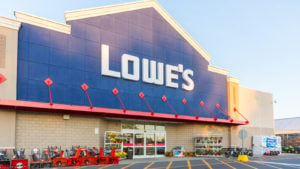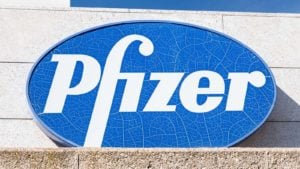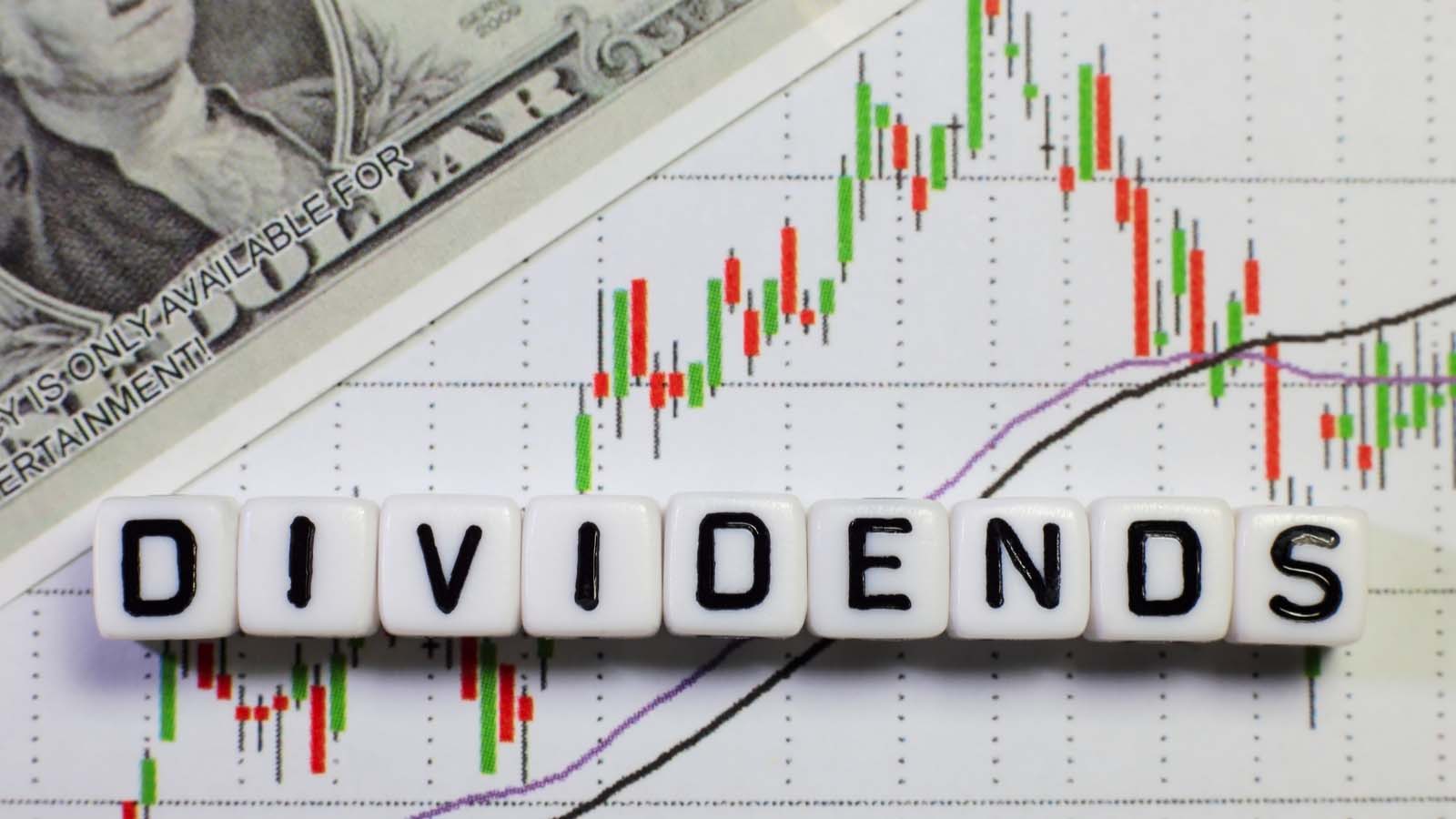Investors focusing on a strategy of dividend growth stocks have performed better than some broader market indices. For instance, the Dividend Aristocrats have declined about 5.3% year-to-date, much better than the S&P 500 or the Nasdaq. The S&P 500 is down about 13.1%, and the Nasdaq has decreased about 22.9% and is in a bear market.
High-quality stocks paying an increasing dividend have arguably done well. However, investors are selling quality along with riskier stocks. Hence, they may want to take this opportunity to buy the dip.
Here, we discuss three quality dividend growth stocks that are undervalued today.
| Ticker | Company | Price |
| LOW | Lowe’s | $192.78 |
| TROW | T. Rowe Price | $123.98 |
| PFE | Pfizer | $52.13 |
Undervalued Dividend Growth Stocks: Lowe’s (LOW)

Lowe’s (NYSE:LOW) was founded in 1921 and today is one of the largest home improvement retailers in North America. The company has approximately 2,200 stores in the U.S. and Canada. Lowe’s sells lumber, hardware, appliances, flooring, lawn and garden items, lighting and plumbing, etc. The company also provides services to consumers. The company sells leading national brands and well-known private label brands.
The company generated $95,487 million of revenue in the last 12 months, of which around 75% is from retail consumers and about 25% is from professional contractors. Lowe’s has gained roughly 10% of the nearly $1 trillion home improvement market, placing it second after Home Depot (NYSE:HD).
Lowe’s continues to grow organically and by adding stores. The company benefits from new home construction because professional contractors buy more materials. However, rising mortgage rates usually slow new home construction, but extant homeowners tend to remodel and improve homes, benefitting Lowe’s sales. Furthermore, Lowe’s is profiting from sub-4% unemployment rates.
Lowe’s is well-known for its 60-years of dividend increases, placing it on the Dividend Kings list. The company is also a Dividend Aristocrat. The retailer is known for its high dividend growth rate of about 17.3% in the trailing five years and 18.8% in the past 10 years. The conservative payout ratio of 24% leaves room for more dividend increases. Currently, the forward dividend yield is approximately 1.64%, just below the average in the past five years of 1.73%.
Lowe’s stock price has been caught in the downward trend of the broader stock market with a ~22.4% year-to-date (YTD) decline. The forward price-to-earnings (P/E) ratio has decreased to about 14.4X, below the range in the past five years and 10 years.
T. Rowe Price (TROW)

T. Rowe Price (NASDAQ:TROW) was founded in 1937. Today, it is one of the largest active asset managers in the U.S. It is also one of the few large publicly traded asset managers.
The firm is known for its 401(k) and individual retirement account plans. Besides retirement plans, T. Rowe Price offers mutual funds to retail investors, institutional accounts and sub-advisor services.
Total revenue was about $7,708 million in the past 12 months. As an asset manager, the firm charges a fee for assets under management (AUM). If the AUM is higher due to market action and fund inflow, then T. Rowe Price’s revenue is greater and vice-versa.
At the end of Q1 2022, the company had about $1.55 trillion in AUM. However, T. Rowe Price’s revenue and earnings are sensitive to the stock market.
The firm grows by adding more assets and expanding its distribution. Notably, the company’s funds tend to perform well over the long term, attracting investors and money. In the past 10 years, 85% of the equity funds outperformed the Morningstar median, 67% exceeded the passive peer median, and 72% beat their benchmark. In addition, T. Rowe Price does well for fixed-income and multi-asset funds.
T. Rowe Price is a Dividend Aristocrat with a 36-year streak of dividend increases. The relatively low payout ratio of 33.9% means more future dividend growth. The company often increases the dividend by double-digits, and the trailing 10-year growth rate is ~13.3%, and the 5-year growth rate is ~14.9%.
The stock price recently was down about 34% YTD to $128.59, near the 52-week low and well-off the 52-week and all-time high of $224.56. Simultaneously, the valuation has fallen to about 12.3X, below the range in the past five years and 10 years. T. Rowe Price is an undervalued market leader with a nearly 4% dividend yield.
Undervalued Dividend Growth Stocks: Pfizer (PFE)

Pfizer (NYSE:PFE) traces its history back to 1849. The company has evolved into one of the largest global pharmaceutical companies.
Pfizer reorganized over the past few years into an R&D-based company. The company formed the GSK Consumer Healthcare Joint Venture in 2019 with GlaxoSmithKline (NYSE:GSK), including Pfizer’s over-the-counter business. Pfizer owns 32% of the JV. Additionally, Pfizer spun off its Upjohn segment and merged it with Mylan forming Viatris for its off-patent, branded, and generic medicines in 2020.
Total revenue has more than doubled from 2020 to $92,433 billion in the past 12 months because of Pfizer’s Covid-19 vaccine, Cominranty, and the anti-viral, Plaxlovid. Furthermore, Pfizer has multiple blockbuster drugs with $1 billion-plus in revenue, including the Prevnar vaccine, Ibrance, Elquis, Xtandi, Vyndaqel/Vyndamax, Xeljanz, and Enbrel.
Pfizer grows organically through additional indications for existing drugs, and M&A. Pfizer has bought smaller companies with promising molecules and compounds.
Most recently, Pfizer bought Arena Pharmaceuticals for $11 billion in cash for potential therapies in immune-inflammatory diseases. Pfizer has also acquired Array BioPharma and Trillium. In addition, the company announced the acquisition of Biohaven Pharmaceutical for $11.4 billion for oral migraine therapies.
Pfizer is a Dividend Contender with 12 consecutive annual dividend increases. The forward dividend yield of about 3% is supported by a 35% payout ratio and robust free cash flow. As a result, Pfizer tends to raise the dividend at a low-to-mid single-digit rate.
Despite the market correction, Pfizer’s stock price is up about 6.38% for the year. But the rapid rise in revenue and earnings means the forward earnings multiple is 8x for this market leader. In addition, Pfizer will likely benefit from its mRNA vaccine technology and M&A strategy for long-term growth.
The opinions expressed in this article are those of the writer, subject to the InvestorPlace.com Publishing Guidelines. Prakash Kolli holds a long position in TROW.
The author is not a licensed or registered investment adviser or broker/dealer. He is not providing you with individual investment advice. Please consult with a licensed investment professional before you invest your money.
Prakash Kolli is the founder of the Dividend Power site. He is a self-taught investor and blogger on dividend growth stocks and financial independence. Some of his writings can be found on Seeking Alpha, InvestorPlace, TalkMarkets, ValueWalk, The Money Show, Forbes, Yahoo Finance, FXMag, and leading financial blogs. He also works as a part-time freelance equity analyst with a leading newsletter on dividend stocks. He was recently in the top 1.0% and 100 (81 out of over 9,459) of financial bloggers as tracked by TipRanks (an independent analyst tracking site) for his articles on Seeking Alpha.
